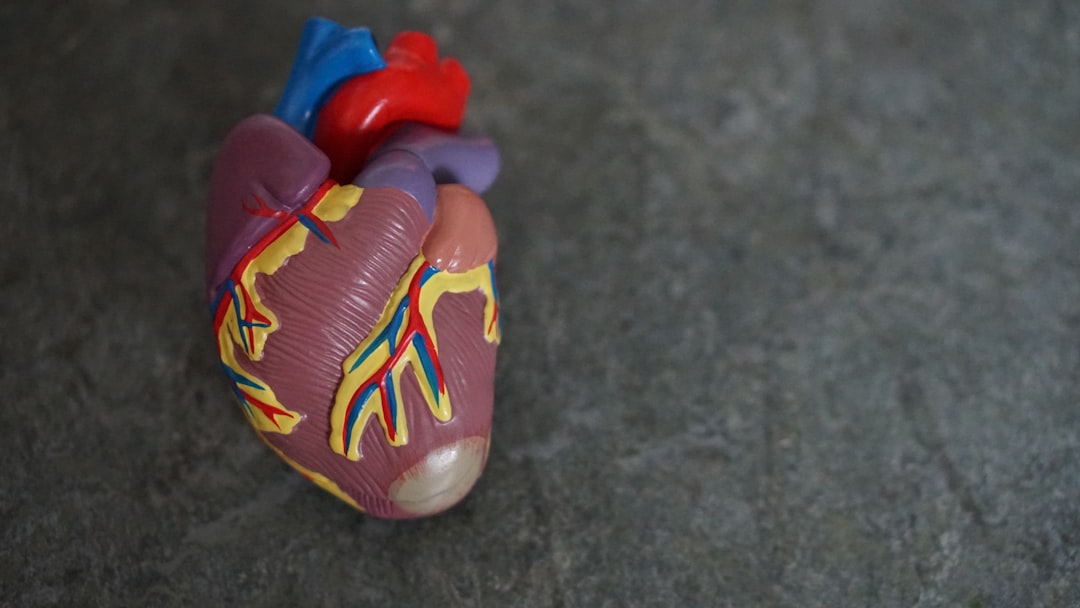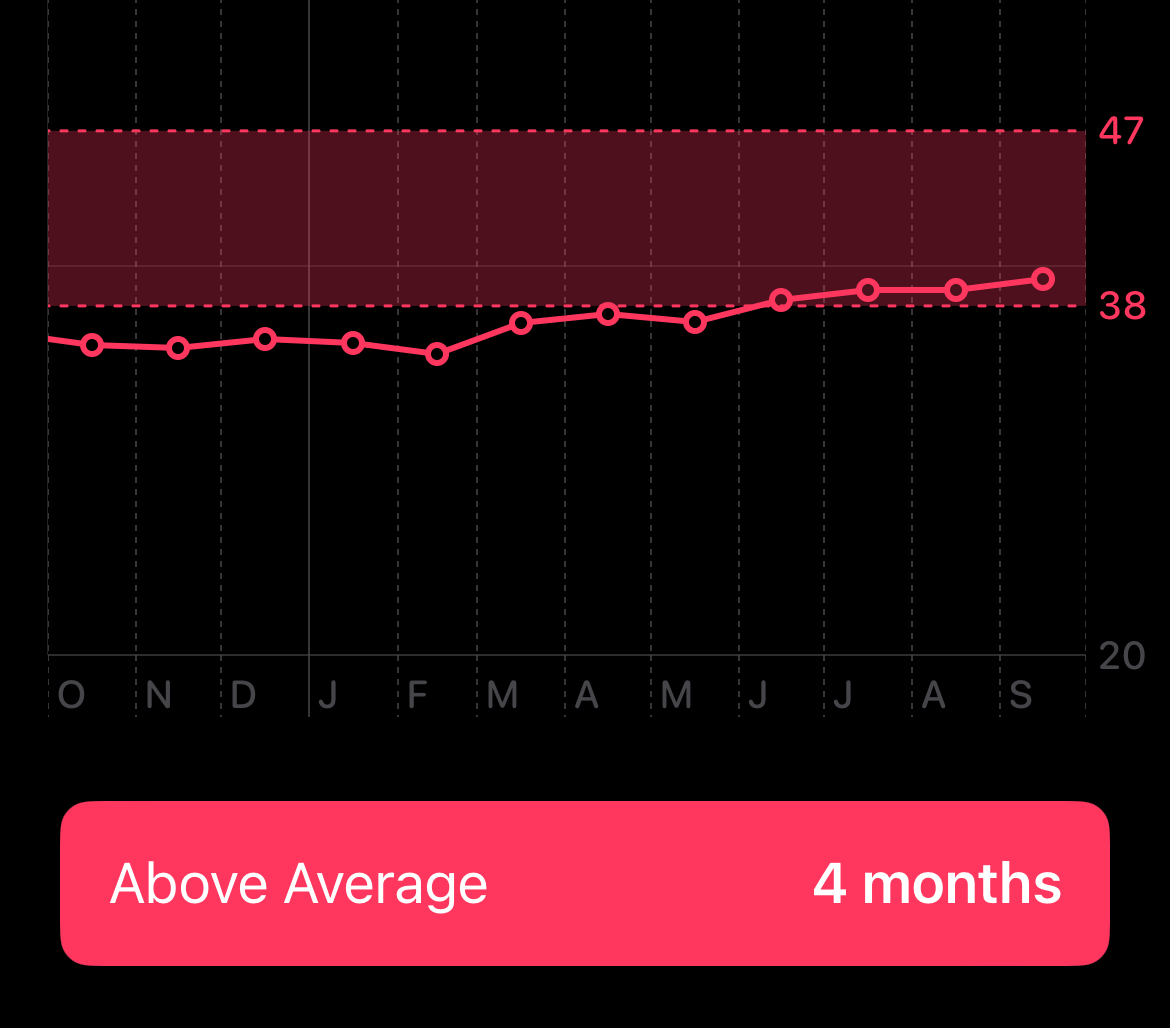How to Avoid a Heart Attack
What I've learned by focusing on cardio health this year

👋Hello, my friend. It’s not often I have a newsletter (and podcast) that I can legitimately say may save your life… but this might just be one.
Here’s what we’ll cover:
The latest episode of the Intentional Wisdom podcast with Dr. Paddy Garrett
Some thoughts on what I’ve learned about cardio health
A few pieces of content I’ve found particularly useful in learning more about the heart
Let’s do it!
Quick disclaimer: I am not a doctor. Everything in here is based on how I understand it but I’m a novice so do your own research please!
Ep.27 - Dr. Paddy Barrett - How to Avoid a Heart Attack
Dr. Paddy Barrett is a Dublin, Ireland based cardiologist who is a well-known thought leader on all things related to heart health. In addition to an impressive professional background that includes working with the meditation app, HeadSpace, partnering with NASA on medical devices and conducting research at Columbia University, he also happens to be a great content producer writing regularly on his weekly Substack and on Twitter and LinkedIn.
In this conversation, Dr. Barrett and I talk all about all things cardiovascular health and more specifically how to avoid a heart attack. We cover:
What a heart attack is – and how it differs from cardiac arrest
What measures you should be looking at to assess your risk factors including LDL cholesterol, apoB, and LP(a)
What tests you might want to consider getting to assess your current risk - from calcium scans to CT angiograms to stress echo tests
And what to do about all of this: from diet to exercise to medication
As always, if you get a chance to listen, let me know what you think.
What I’ve Learned about Cardio Health
After reading Dr. Peter Attia’s Outlive, which I summarized the highlights of here, I became mildly obsessed with assessing and improving my own cardio health.
The chapter in the booked called The Ticker is essential reading, in my opinion, if you have aspirations of living a long, healthy life.
The punchline here is: Heart disease is the biggest killer of adults in the world but it’s largely a preventable disease. Or more specifically, if we understand our risks and proactively manage them, we should, in theory, be able to stave off heart disease for a long time… possibly adding decades to our lives.
Broadly speaking, to do this (and I discussed this with Dr. Barrett in detail), you can think of constructing a plan around this in 3 steps:
Step 1 - Assess your risk factors.
Lipid panels can be a bit complicated to navigate. Most people are mildly aware that they should pay attention to their LDL (sometimes called “bad cholesterol” levels), which is a good measure to track. But both Attia and Barrett think apoB is a better indicator of risk. This is not measured in a standard lipid panel but it’s cheap to add (~$20) and your doctor shouldn’t have any problem ordering it.
The whole game is to keep your LDL (and/or apoB) as low as possible for as long as possible. How low exactly? Well, there’s some debate there. It can vary by health history, age and other factors but broadly speaking the healthcare system and your doctor will probably say they want to see your LDL under 100 mg/dl. Attia, on the other hand, thinks that’s still way too high and advocates for levels <30 mg/dl, which in many cases cannot be achieved without pharmacological intervention (usually statins).
The healthcare system wants to see your apoB <90. Attia thinks if you’re serious about longevity you should target <30. Again, tough to do without drugs.
Outside of LDL cholesterol and apoB, both Attia and Barrett say you should get your LP(a) (pronounced L-P-little-A) tested. For some reason, this is not a standard test either but basically an elevated LP(a) tells you that you are at materially higher risk for heart-related issues. This is purely genetic and affects 1 in 5 people. If you have elevated levels (>75), you’re going to want to take your heart health even more seriously. There’s some debate on whether or not people would want to know this but for me… more information is (almost) always better.
What I am doing?
Establishing baseline measures: I started to get more formal about knowing all of my stats and keeping them in one place. Here’s a super rough spreadsheet I’m using to track my own #’s if you want a template.
Tracking them regularly: I plan to start having my LDL cholesterol measured quarterly. Why? Because this is a measure you can actually move the needle on with diet interventions (and it tends to be slightly more accessible than apoB). I want to experiment with different foods and diets because they can affect people differently. For instance, some people see their LDL and apoB shoot up when they go keto, while others don’t. I want to better understand how what I’m eating is impacting my #s so I can get these measures as low as possible without the use of drugs, which I’d rather avoid (for now) if I can.
Step 2 - Find Out How Far the Disease Has Already Progressed
Bad news. Even if you’re young you’ve already likely got some evidence of plaque accumulating in your arteries. The key is to keep it to a minimum for as long as possible. But knowing where you’re starting from is helpful.
Here are the tests that Attia recommends:
CT calcium scan - This is a quick and easy scan with very limited radiation. It can give you a calcium “score” which indicates how much plaque is already accumulated in your arteries. It’s not an exact science but a higher than expected score could be an indication you need more tests.
What I’m doing: I got this done. My doctor ordered it but it wasn’t covered by insurance. It was $200 out of pocket. It took less then one minute. My score, for what it’s worth, was zero. That doesn’t mean my risk is zero but it is the score I should have been hoping for.
CT angiogram - This is a more involved scan with contrast and potential exposure to more radiation (though I understand with newer machines this is quite limited). This gives a more accurate and thorough assessment of plaque build-up in the arteries.
What I’m doing: I did not get this done. My doctor would not order it based on my risk factors. If I were to have worrying cardio signs, I would insist on this. Without insurance coverage, it’s on the pricey side, roughly $2000, but like I said (and like Attia talks about) it’s a much more accurate picture of what’s going on.
Stress echo exam - This test measures how your heart is actually functioning under stress - which means walking fast on an inclined treadmill for 10-15 minutes.
What I’m doing: I got this done even though it probably wasn’t necessary. It was not covered by insurance (as they deemed it unnecessary for me) and it cost $400 out of pocket. My #’s were normal but I got some additional info from this including some insight into my own cardio fitness. Dr. Barrett put out a really good newsletter on stress echo exams if you want to dig more into this.
Step 3 - Proactively Take Steps to Your Lower Risk
This is all the stuff that won’t surprise you:
Nutrition - Eating a balanced, nutrient dense diet. Avoiding lots of processed carbs.
Exercise - Moving your body, a lot. I realized this year that I was in much worse cardio shape than I thought. I’ve slowly been improving my cardio fitness throughout the year mostly by focusing on Zone 2 workouts. See chart below from my Apple Watch data. This is only a very crude approximation of V02 max as I understand it… but I’m happy that it’s moving in the right direction and I flipped it into “Above Average” territory over the last four months… I’m really focused on continuing to improve this. VO2 max is one of the best predictors of longevity. If you’re interested, my weekly workout these days is Zone 2 x 3 days, Strength x 3 days, and HIIT x 1 day.
Sleep - Getting 7 to 8 hours per night religiously. This is when your body does all of its healing. If you’re not allowing it to, you are going to have problems. The question is not “if” it’s “when”. Huge focus for me always.
Stress Management - Keeping stress at manageable levels. This is the one I’m probably performing worst on personally as I’ve fallen out of my meditation habit but honestly the exercise (and sleep) are big parts of keeping this under control.
There’s a ton more to this. But if you want to get smarter about hearth health and minimizing your own risk of a heart attack, I’d start with Attia’s book (and the chapter called The Ticker). It’s excellent in print and audio, I’ve read both.
Both Attia and Barrett talk about the dangers of being “average” when it comes to hearth health. “Average” is a heart attack at 65 for men and 72 for women. I don’t know about you, but that doesn’t sound awesome to me. And the stats around heart attacks for younger people (40s, 50s) are pretty eye-opening, too.
Again, the whole game here is minimizing your risk exposures for as long a time as possible. In contrast to other diseases like cancer or dementia, this is not a “black box” or a luck-of-the-draw situation. You can estimate your risk factors and measure the progress of this disease with a high degree of accuracy and you can take proven steps to lower these risks and, in turn, your risk of a heart attack.
To me, that’s awesome. And I intend to stay hyper-focused on this part of my health in the months and years to come.
Content Diet
Podcast: Peter Attia and Rich Roll - Unlocking the Science of Longevity
If you’re not ready to dive into the full 17-hour audiobook yet, this is the interview I heard that first got me interested. Roll & Attia hit some of the high points and cover parts of Attia’s own gripping story, including his battles with depression. An excellent conversation. If you want to go further down the Attia/cardio rabbit hole, this episode from The Drive podcast was also incredibly informative.
Newsletter: Dr. Paddy Barrett
If you’re interested in diving more into Dr. Barrett’s work, his weekly newsletter on all things cardio health is very good. He’s always hitting relevant topics like “Do Statins Cause Dementia?” or “The Advantages of a CT angiogram.” Anyhow, if you like nerding out on this stuff like me, you might like this.
Finally, here’s the full YouTube version of my conversation with Dr. Barrett.
Thanks for reading. See you in two weeks!
Greg




This was a great episode.
Great issue, thanks